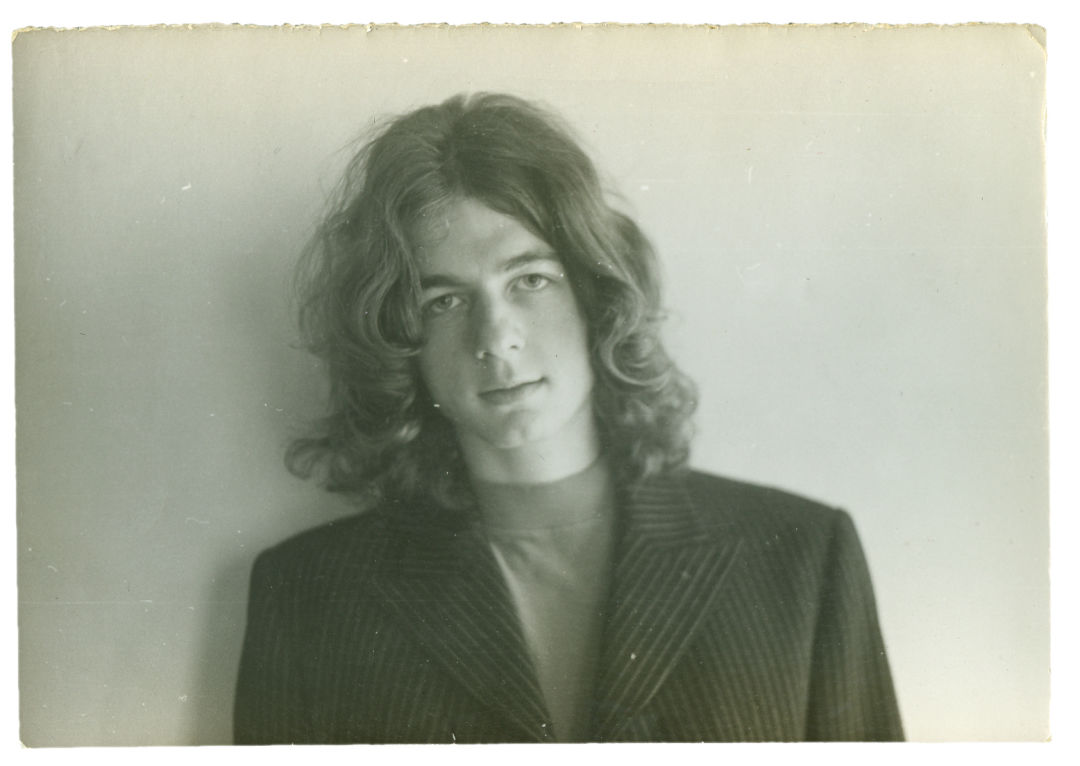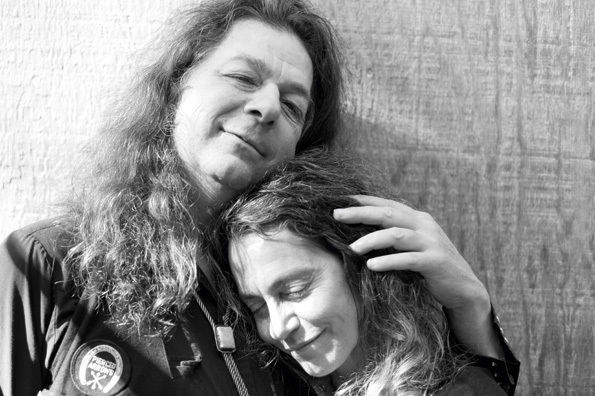Dead Moon's Fred Cole Was One of the Greatest Northwest Rock Singers Ever

Fred Cole circa 1969
Image: Courtesy The Coles
Some singers make songs feel less heard than revealed. They render the humble pop ditty not as a three-minute single for sale (or, good God, to stream), but as something passed down under high-stakes circumstances—an ancient piece of lore fired with the urgency of highly classified information. Edith Piaf did that; Robert Johnson did that. Young Dylan and, sometimes, old Dylan do that. In the rock forms practiced and perfected in the Pacific Northwest, Kurt Cobain and Kathleen Hanna and Corin Tucker have all had their moments.
Fred Cole, the veteran guitarist and vocalist best known for his longtime band Dead Moon, wielded that strange power to turn a ragged three-chord scrap into hair-raising testimony. Cole died last week at the age of 69. (Cancer, battle with, as they say.) For those who heard the call of the many songs, records, and shows Cole created with his wife Toody and drummer Andrew Loomis from the late ‘80s to the ‘00s, news of his death made the Northwest much quieter.
By the strictest definition, Dead Moon was just a garage band, in fact an arch-conservative genre exercise. Songs ran short and simple, intensity always cranked, instrumentation stripped to the most rattletrap version of a power trio. They collaged unfinished proto-punk and ur-metal—some alloy forged before either cooled into its final form. Approximately eight million bands have done this in a Northwest rock tradition that goes back to snarly ‘60s teen-dance acts like the Sonics and the Kingsmen. Cole and Dead Moon elevated the formula into art. In their hands, garage sounded not simplistic but edited. They operated with a bony elegance, an economy—a frugality that itself felt very true to the Northwest. They knew exactly what they wanted to create and they distilled it to its essence. They recorded in mono.
One night in Missoula—this was a long time ago, now, in my hometown—my cousin and I were having some pre-show whiskeys. A woman we did not know came up to us; I recall a certain dishevelment, a pair of wiggy eyes. “There’s something happening in this town,” she told us. “There’s something happening in this town…and I know…I know because of Dead Moon.”
They were that kind of band. Portents swirled. Spirits rode the night. Fred Cole sang in a crackling, freaked-out scream, with lyrics that often owed as much to Edgar Allan Poe as any writer in rock itself. “Tell me what you came for, Dagger Moon!” He really wanted to know. You could never tell if Cole wanted to frighten you, or if he roiled in the grip of existential terror himself.
They were of an era, true. For some longtime Portlanders who are (or once were) tuned into the local underground, Dead Moon represents a purity and a toughness—with an older, rougher, realer Northwest. (Cole’s life story checks out: born in Tacoma just after the War, he played the ‘60s rock circuit, homesteaded in the Yukon, ran a general store…and, yes, that's a New York Times obit.) Sometimes music appeals because it evokes nostalgia. Fifteen years back, walking into the Benson Hotel lobby bar to find Andrew Loomis drinking trebels—that was Portland, or at least a piece of it. (Loomis died last year of lymphoma.) The city changed and music changed. Dead Moon did not change. (Fred and Toody also formed a post-Moon band called Pierced Arrows, but it was still basically Dead Moon.)
But sometimes music, from whenever, just expresses something true. A song—a howling yawp of a voice—can reach through the years to remind you who you are and where you are. To the extent that Dead Moon was a specifically Portland band, they anchored their Portland in the West. The vibe was streetwise, romantic, artistic, ready for love or a fight, Frontier High Goth. A ceremonious candle burned on Loomis’s kit. The band could make any room feel like a spooky roadhouse, an impression true to an overarching Dead Moon-ness that entailed a base in Clackamas, a DIY record label called Tombstone, a whiskey-and-cigs swagger, and a visual and sartorial palette that ran from black to even blacker.
And those essential qualities, I suspect, will keep Portlanders listening to Dead Moon for the foreseeable future. Fred Cole sang for a place perched on the edge of an ominous continent and a stormy sea—really wild, and ever weird. That will be us.




